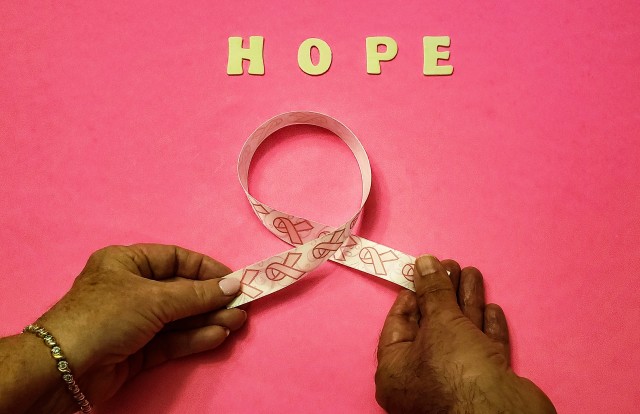Addressing Root Causes and Preventing Breast Cancer: A New Toolkit and Breast Cancer Action with a precautionary, prevention-oriented approach
3:00 pm US Eastern Time
Slides & Resources
Slides
Download and view Sarah Petras’ Slides here (7 Mb)
Download and view Jayla Burton’s slides here (4 Mb)
Resources
Breast Cancer, Chemicals and Environmental Justice – a 2020 Op-Ed by Dr. Seguinot-Medina https://www.juneauempire.com/opinion/opinion-breast-cancer-chemicals-and-environmental-justice/
Breast Cancer Action – https://www.bcaction.org/
BCAction’s podcast series – https://bcaction.org/category/podcasts/
Breast Cancer Awareness Month – https://www.nationalbreastcancer.org/breast-cancer-awareness-month
Alaska Community Health Aides Program (CHAP) – https://akchap.org/

Listen to the audio recording of this webinar here.
Please join the Alaska Collaborative on Health and the Environment during Breast Cancer Awareness Month for a presentation by Dr. Samarys Seguinot-Medina and Sarah Petras, MPH about a new Environmental Links to Breast Cancer Toolkit designed by Alaska Community Action on Toxics and a presentation by Jayla Burton, MPH, from Breast Cancer Action on the root causes of breast cancer, BCA’s emphasis on prevention, and their Think Before You Pink campaign.
‘The Environmental Links to Breast Cancer Toolkit was designed for the Alaska Community Health Aides Program (CHAP) in order to train Community Health Aides/Practitioners (CHA/Ps), other health care professionals, and the people of Alaska about environmental contaminants found in the North and Arctic regions that are linked to breast cancer. The toolkit includes facts about cancer-causing and hormone-disrupting chemicals that contaminate the traditional foods, air, water and land of Alaska Native peoples, as well as household and personal care items. It also explores the effects of these chemicals on human health, offers guidance on how to reduce exposure, and provides an environmental health assessment tool to help in identifying patients’ exposures. The toolkit has an overall focus on prevention of cancer and also suggests ways to support those living with breast cancer.’ A special thanks to the Alaska Run for Women and other funders whose generous support helps make efforts like the Environmental Links to Breast Cancer Toolkit possible.
Breast Cancer Action recognizes that the increasing majority of breast cancer cases can’t be explained by genetics, diet or reproductive history. In contrast, there is an increasing correlation between incidence of breast cancer and environmental contaminants such as exposure to cancer-causing and endocrine-disrupting chemicals
Featured Speakers
Dr. Samarys Seguinot Medina (Sama) has been ACAT’s Environmental Health Program Director for the last 10 years. Most of her work has been leading community-based participatory research in remote areas of Alaska, mainly in the Norton Sound region. She has a Dr.PH (Doctor in Public Health) from the University of Puerto Rico, Medical Sciences Campus in San Juan (SJ) and a master’s degree in Environmental Risk Assessment and Planning from Universidad Metropolitana (Metropolitan University) in SJ, Puerto Rico.
Sarah B. Petras, MPH, is an environmental health researcher and program manager based in the Netherlands. As a former staff member at Alaska Community Action on Toxics, she worked on community-based participatory research projects, biomonitoring, advocating for cleanup of contaminated sites, and engaging health care professionals in environmental health policy reform. She has also worked on state and federal chemicals policy reform campaigns and coordinated environmental health programs for the State of Oregon. Sarah has a Master of Public Health degree from Portland State University in Health Education and Health Promotion.
Jayla Burton, MPH, is the Program Manager at Breast Cancer Action, where they run BCA’s national campaigns and promote policy and advocacy education. Jayla has dual Masters Degrees in Public Health and Behavioral Health Science from the University of San Francisco and has worked in Global Health, Women’s Health, Behavioral Health, and Harm Reduction.
This call was hosted by the CHE-Alaska Partnership, which is coordinated by Alaska Community Action on Toxics (ACAT). It lasted for 60 minutes and was recorded for the call and webinar archive.


